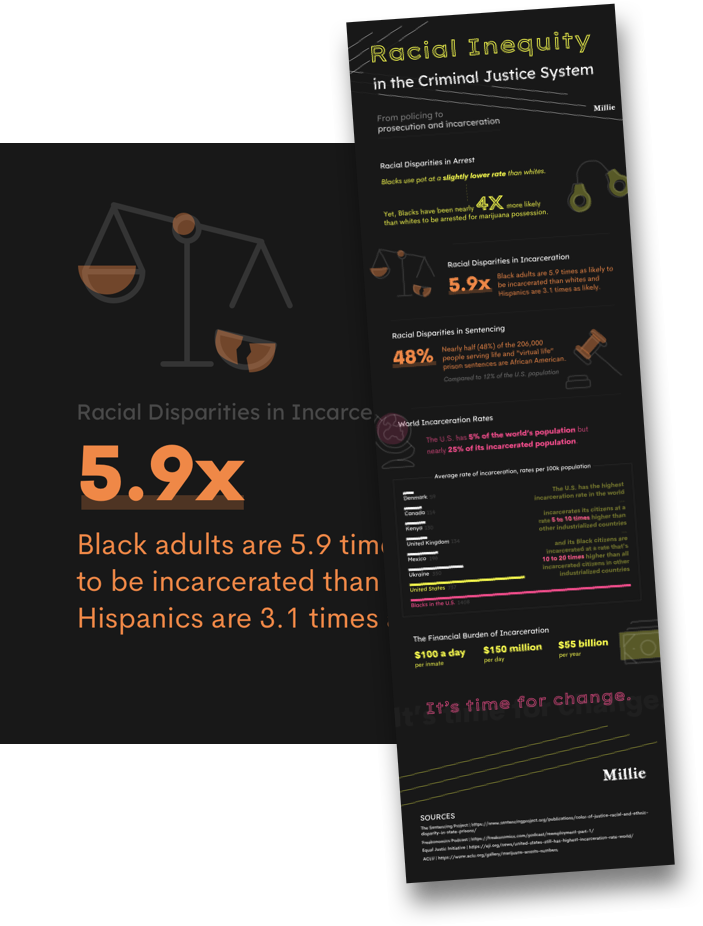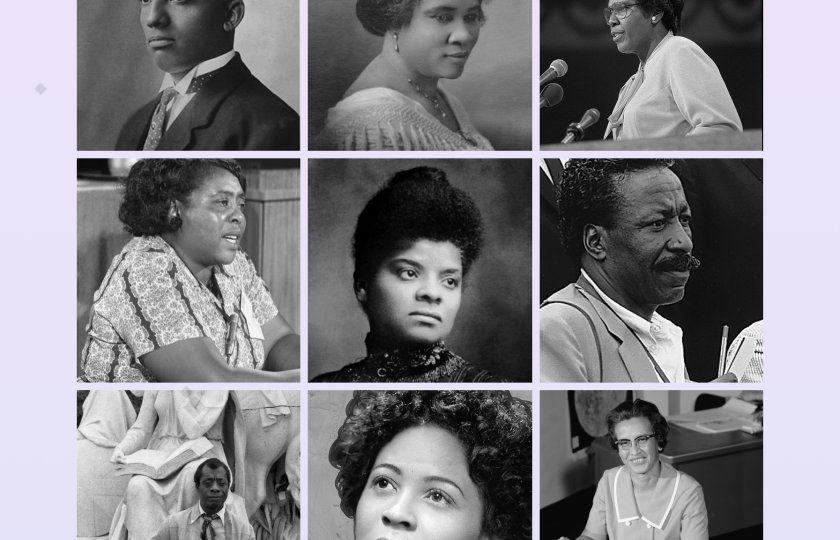We are so excited to be sharing the stories of these 9 influential leaders as we celebrate Juneteenth today. Their stories, like Juneteenth, are often glossed over in American history. These stories define courage. From Daisy Bates desegregating Arkansas schools to Ida B. Wells who educated others on the conditions of Black Americans in the South, going on to found the National Association of Colored Women’s Clubs. They are each truly inspiring.

Daisy Bates: Daisy Bates was an American civil rights activist and journalist. Bates served as the President of the Arkansas Chapter of the NAACP and helped lead the desegregation of Arkansas schools, organizing the Little Rock Nine. She often escorted these students to school to protect them from violent crowds.
Fannie Lou Hamer: Fannie Lou Hamer was a civil rights activist who co-founded the Mississippi Freedom Democratic Party in 1964, which challenged efforts to block Black participants in the Democratic National Convention. Her work often incorporated the intersectionalist of civil rights and women’s rights – she helped found the National Women’s Caucus in 1971.
Barbara Jordan: Barbara Jordan was a lawyer and scholar, and was the first Black woman elected to Congress from the Deep South. During her time as senator she worked to establish a minimum wage law, antidiscrimination statements in business contracts, and a Fair Employment Practices Commission. She also was active in calling for President Nixon’s resignation after the Watergate scandal.
Madame C.J. Walker: Madame C.J. Walker was an entrepreneur, philanthropist and activist. She launched her own line of hair products for Black women and became the first Black woman self-made millionaire. Walker used her wealth to support the YMCA and the NAACP and provide scholarships for Black students at Tuskegee Institute.
Ida B. Wells: Ida B. Wells was a prominent journalist, activist and researcher, born into slavery in 1862. Wells used her position to shed light on the conditions of Black Americans in the South and traveled internationally to make foreign audiences aware of the practice on lynching in the United States. She founded the National Association of Colored Women’s Club to address civil rights and women’s suffrage.
Katherine Johnson: Katherine Johnson was a mathematician whose work was instrumental to the first U.S. crewed spaceflights. She worked for NASA for more than 30 years, contributing to numerous space exploration projects and authoring or co-authoring 26 research reports. (Johnson passed away earlier this year at the age of 101!)
Gordon Parks: Gordon Parks is one of the greatest photographers of the 20th century. Born in 1912 in a segregated Kansas, Parks taught himself how to use a camera as a young man and won the Julius Rosenwald Fellowship in 1942. Parks’ work documented American life from the 1940s to the 2000s, with particular focus on race, poverty, civil rights and urban life.
James Baldwin: James Baldwain was an essayist, novelist, playwright, poet and activist. Baldwin’s work explored race, sexuality and class in the United States. His work has impacted generations of Americans and explores the complexity of being an individual in a society that favors categorization.
Carter G. Woodson: Woodson is known as the “Father of Black History” and penned the influential book “The Mis-Education of the Negro.” Woodson believed that Blacks should understand their history to most effectively participate in the affairs of the country. In 1926 he developed Negro History Week, though he hoped that one day this would not be necessary as all Americans recognized the contributions of Black Americans throughout U.S. history.




